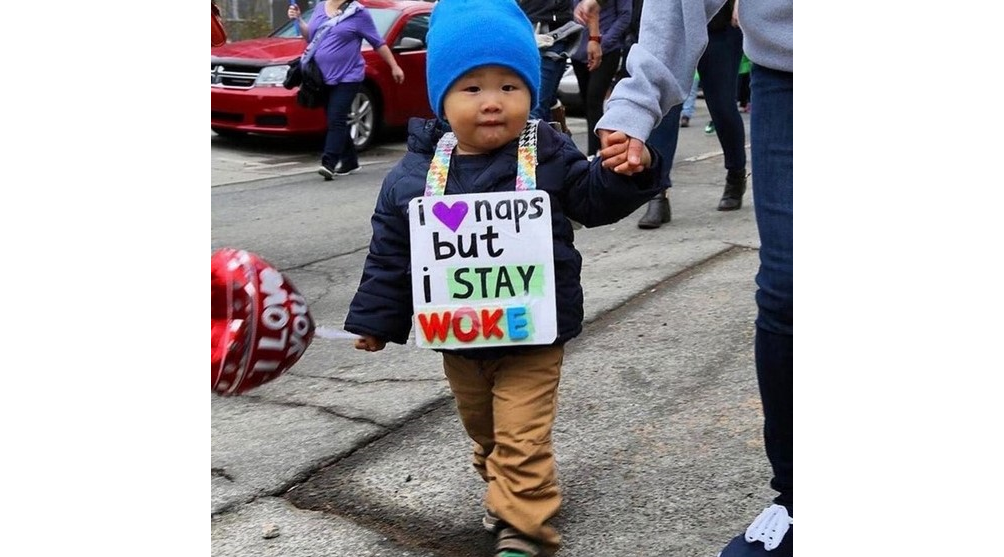With all that's been going on lately, how are the Citizens with young kids handling it? I want to share some thoughts, tips, and resources, in case they're helpful. And if you don't have young kids but know someone who does, please feel free to share this with them.
First off--do you really have to talk about race with kids? Can't you just tell them that everyone is equal and let them figure it out from there? Nope! The world is not colorblind, and neither are your kids. A while back, I read the book NurtureShock, which has a great chapter called “Why White Parents Don’t Talk about Race.” You can check out an excerpt here. The key takeaway is that even very young kids see skin color differences and that not talking about race results in kids jumping to conclusions that are probably not what you wanted them to have.
And think about it. Once kids hit a certain age, they're going to hear things at school, from kids on their baseball team or in their gymnastics class or from someone at in their scout troop. So wouldn't you rather have given them a certain level of knowledge and understanding for when things come up in situations you're not a part of?
Telling a kid that a cop killed a Black man in your community is wrenching. When we told the jalapeno, who is nearing ten years old, about George Floyd's murder (omitting graphic details), he asked "But why?" in this voice that broke my heart. I was glad that at least we've been talking about race and racism for a long time already with him. When you have already been talking about race with your kid, in a moment of crisis you're not starting from zero.
So where do you start? I probably have a bias toward books, but I also think they're a great way to have a conversation about something without making it about your kid or their friend or anything that feels more personal.
Here's a great list of picture books you can use to start these conversations: 31 Children’s Books to Support Conversations on Race, Racism, and Resistance.
For the youngest kids, you can preorder Antiracist Baby by Ibram X. Kendi, which comes out on June 16. And here's a list with more great board books for babies and toddlers.
For a resource specifically about police violence toward Black men, there's a good book called Something Happened in Our Town that's also been made into a 9-minute video you can share. I like that it includes both a white family and a black family in the storyline. Consider watching it with your kids as a way to launch a conversation. If you get the book, there is a lot of information for parents and educators about how to talk more with kids.
Earlier this morning, I read an article in the Washington Post specifically about the need for white parents to talk about race with their kids. There were three key points I found helpful.
1. Include books, TV shows, movies, music, etc., by nonwhite people as a regular thing for your family. And expand your circles to include people of different ethnicities. The article didn't mention this, but supporting minority-owned restaurants and other business would be another great thing to do.
Our actions speak at least as loudly as our words, and kids pick up A LOT just by seeing what we do. Remember that if you're only reading books about Black people when talking about slavery and civil rights, you're not sharing a complete picture of Black life.
To find good, diverse book for kids that aren't specifically about racism or oppression, a great tool is the Our Story app from We Need Diverse Books.
2. Educate yourself and your kids accurately about history. The article doesn't mention this, but I think doing so also gives you the background so that you can speak up as needed in conversations with your kids' teachers to advocate for a more accurate, more inclusive curriculum.
There are lots of lists circulating right now for what adults can do--here's one with a lot of good resources. And here is a graphic with some great books--the caption includes suggestions on what to start with if you're feeling overwhelmed.
One key book I read last year was An Indigenous Peoples' History of the United States for Young People, which has helped me have better conversation with my kids about our country's history, since my own education in school was profoundly lacking when it comes to Indigenous history.
3. Talk often about current events and things you're seeing on social media. We white people are so often uncomfortable talking about race because we didn't grow up doing it. But by making it a regular part of conversation, you and your kids will start becoming more comfortable having these conversations at home--and out in the world.
Keep in mind that you're not going to have one conversation about race with your kids. Like everything important in parenting, it's something that will come up repeatedly. And your conversations will expand and deepen. And kids will ask questions sometimes when you're not ready for them. But remember that your kids don't need you to have all the right answers. They just need your willingness to talk.
Finally, if you've made a donation in recent days, talk to your kids about the place you're donating to and why. When I was a kid, I had no idea my parents donated anywhere, and while I get the instinct to not call attention to it, I didn't really understand that donating was important because we weren't talking about it.
So I hope this is all helpful, and I wish all the parents out there lots of strength and support today and every day!

